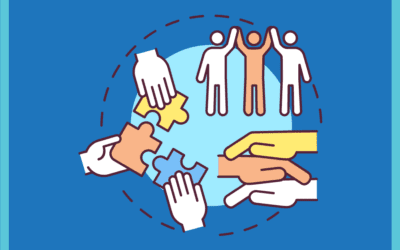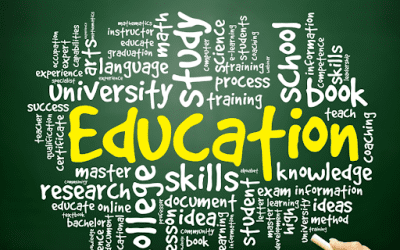Microlearning solves several curriculum process problems for higher-ed leaders and their teams. Corporate training departments have long embraced it for its perks of retention, mobility, and more. Higher-Ed is beginning to see the benefits of this strategy, too. Still, does microlearning belong in Higher-Ed? Read on for how higher-ed leaders benefit by using microlearning in their curriculum development process.
Update Current Offerings With Microlearning
Yes, some subjects seem better suited for microlearning than others. Micro-sized updates modernize tried-and-true content for learners in subjects such as engineering, creative studies, and more. ID teams have chunked foreign languages, mathematics, and computer sciences into bite-size learning sessions for years. ID creators leverage the repetitive flashcard approach to help students learn vocabulary, facts, and software. However, this approach goes stale fast. Thus, leaders must guide ID teams on using microlearning in other disciplines.
Supplement Existing Curricula
Still, microlearning works best when designed as part of a larger strategy within the current curriculum process. The structure lets faculty supplement existing curricula with relevant content that connects with learners. Leaders can facilitate sessions with departments to identify how to chunk a curriculum’s worth of content into bite-size learning. Then ID teams can create short lessons that make sense within that context. Then, IDs can quickly swap outdated content with current info. Besides that, ID teams targeted lessons tailored to the students’ learning styles. Still, a significant benefit of microlearning is that it lets students learn outside of the classroom.
Leaders can facilitate sessions with departments to identify how to chunk a curriculum’s worth of content into bite-size learning. Then ID teams can create short lessons that make sense within that context.
Engage Non-Traditional Students With Microlearning
Today’s incoming first-year students are no longer primarily recent high school grads in their late teens living on campus. Classrooms brim with working parents, older students, and those working remotely. Microlearning helps universities boost enrollment. Leaders can use these mini-sessions to market and brand their institutions. Also, universities can offer short micro sessions to engage their community and alumni. Likewise, leaders use these micro-sized learning to educate students, parents, faculty, and staff.
Educate the Staff
Leaders can leverage the power of bite-sized sessions to onboard new students, contractors, and adjunct staff, too. Besides, these micro sessions are ready when users need to solve a problem or navigate software. Most importantly, students reach for learning chunks in their lives outside the classroom now. YouTube and other online platforms offer a variety of DIY microlearning. So, leaders can urge faculty and staff to use microlearning to create a learning culture that lasts a lifetime.
The Method Helps Create Lifelong Learners
So, leaders should push faculty to build a learning culture. Microlearning lets universities build relationships and lifelong learning. For example, this type of learning lets schools engage alumni with current students. Alumni can record mini-sessions. ID teams can include the sessions in the content. Besides that, microlearning can help build up alumni programs. For instance, ID teams can record on-campus speakers to include in courses. Yes, short-chunked learning blocks let institutions engage their alumni and community.
In sum, higher-ed leaders benefit from including microlearning in their strategy. It helps drive the university’s mission when used with a focused purpose. Higher-Ed can harness these strategies to supplement existing programs. Not only that, microlearning opens a door for schools to boost enrollment and attract non-traditional students. Institutions can offer micro-sessions to their surrounding community. Also, the targeted nature of a microlearning lesson helps institutions educate faculty, contractors, and staff on new tools.




